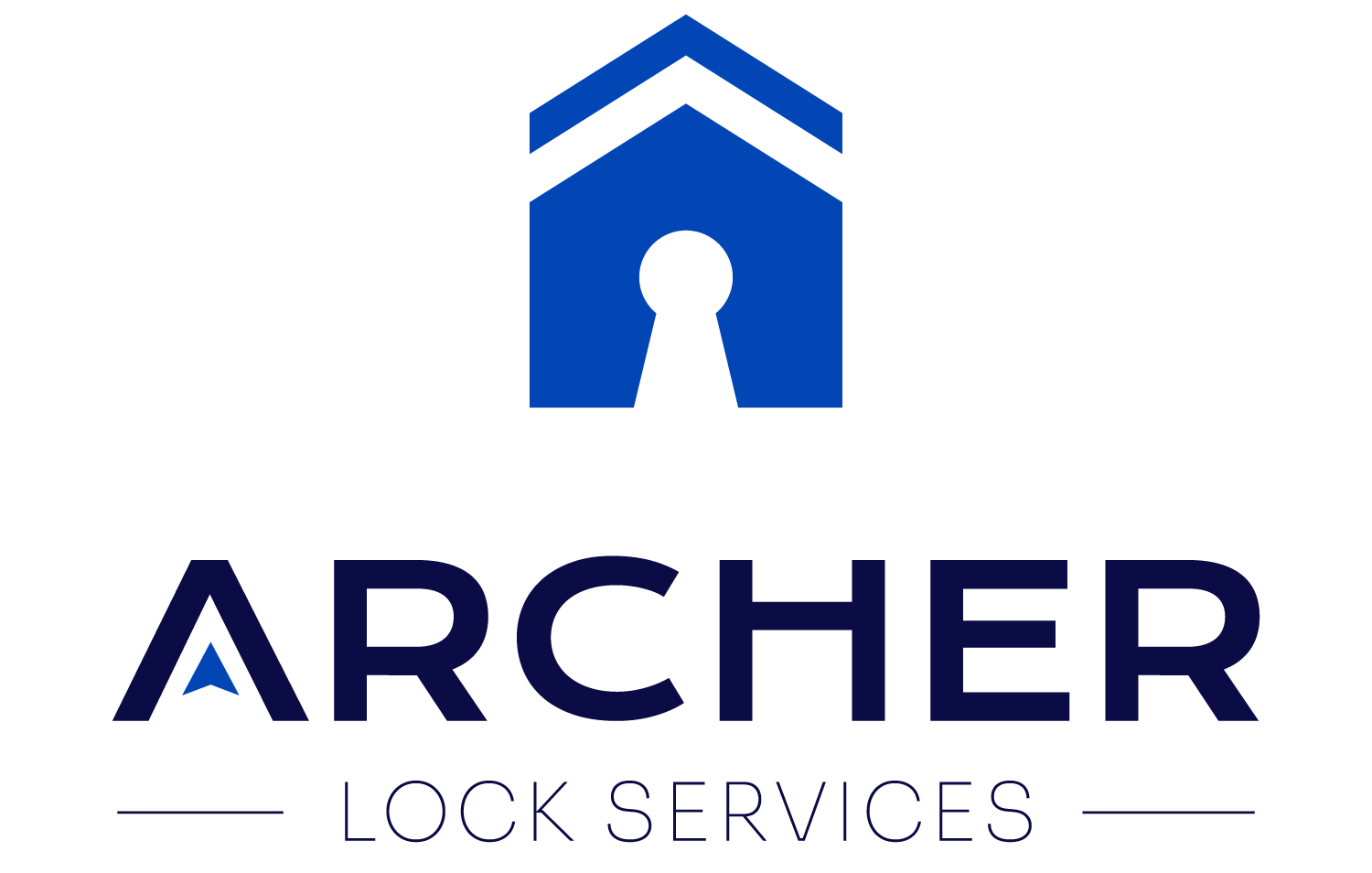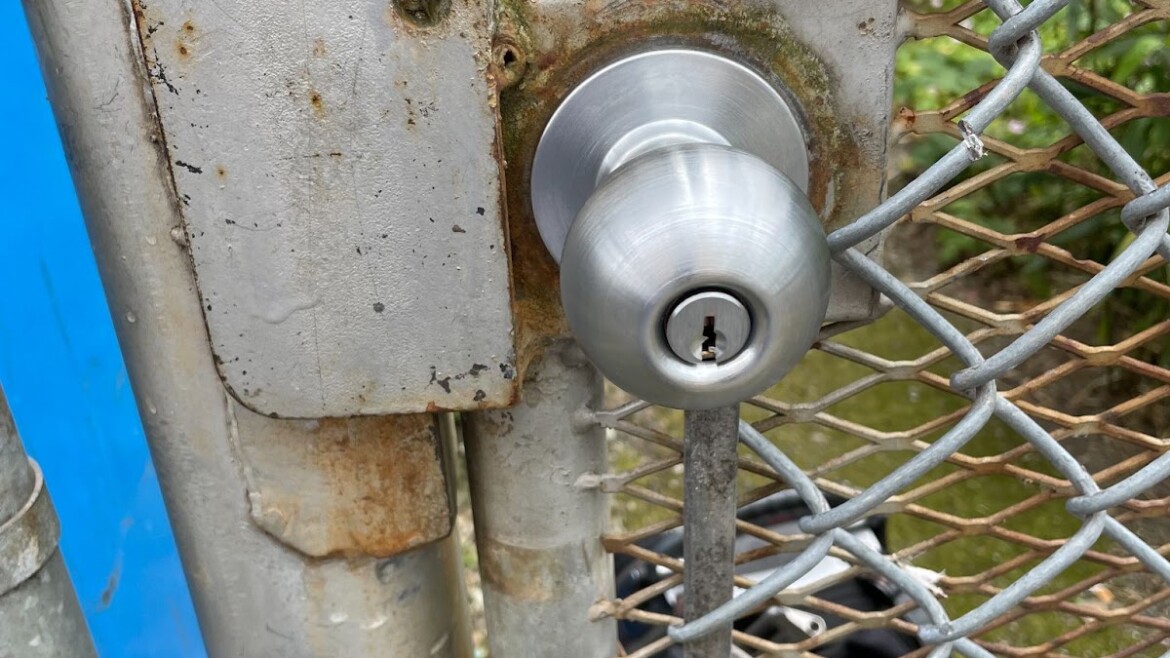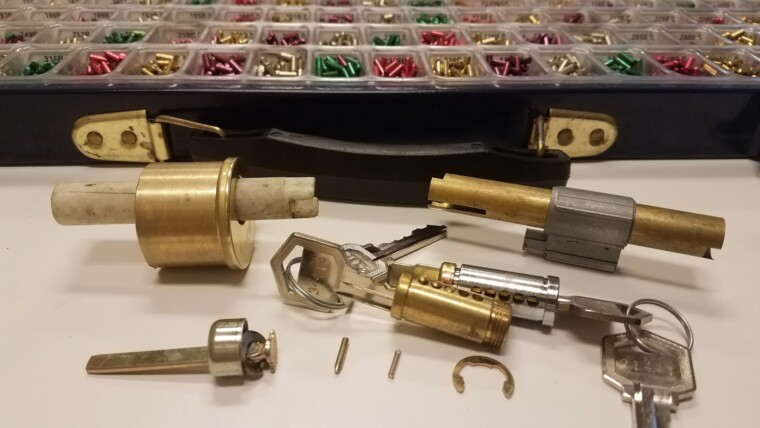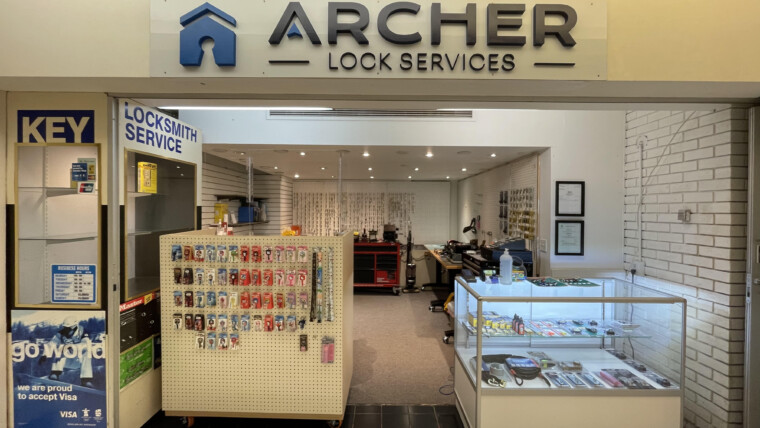Welcome to an edition of the Adventures of a Vancouver Locksmith. A series where we explore some of the more interesting jobs or situations we encounter in our day. As one of the most popular locksmiths in Vancouver, I can’t cover everything I do in a month. So I will just include the stuff that I found interesting or something I think a commercial or residential client should keep an eye out for.
As always, if you need a professional locksmith that puts your needs first, please call or text me at 604-363-2760 or email me at alex@locksmithvancouver.com. We offer same-day service and the best warranty in town!
A little while ago, I got called to a site in the Downtown Eastside area. As many Vancouverites are aware, it’s a colourful neighbourhood with rampant property crime problems. The client had a building with a small backyard enclosed by a chain link fence. Entry was through a gate with a keyed entry knob. Knobs or levers can have several different types of functions. In our case, this was a storeroom knob which means the outside knob is always locked while the inside knob always allows egress. To gain entry, you need to use a key every time and the knob cannot be left in an unlocked state.
This is pretty much the most popular function in Commercial applications as pretty much all perimeter doors and fire-rated doors have storeroom knobs or levers.
The client’s issue was that the gate would not close easily and it was very difficult to use. Upon arrival, I can see that this knob was pretty much rusted out. The screws holding the latch to the gate had completely rusted away, and the inside was completely full of rust. None of the screws could be removed either to allow for easy disassembly.
Now, most DIY’ers would grab a can of WD40 or other types of penetrating oil and spray the screws. Unfortunately, the oil needs time to do its work, but time is money. So professionals like myself just drill them out. The whole lock needs to be replaced anyway. When there is that much rust, the lock is not worth saving.
So what caused all the rust and subsequent problems? First of all, this is an outdoor gate with no overhead cover or awning. It is 100% exposed to the elements. Over the years, it underwent a lot of abuse from Mother Nature.
Second, many gate boxes are welded on all sides with no drainage holes. So when it rained or snowed, all that liquid sat inside the iron gate box until it evaporated. Naturally, this causes a lot of rust.
Third, regular maintenance that could extend the life of the knob was never done. This is not surprising or expected. I have never met a client who disassembled their exterior locks and lubricated all moving parts and critical surfaces as part of their annual maintenance. Oil and lubricants would displace water and inhibit oxidation.
Fourth, cheaper locks use cheaper materials that are particularly susceptible to rust. As I have mentioned before, higher quality locks have more brass and even higher quality locks have specialty alloys like stainless steel. These more expensive materials are more rust-resistant and increase the overall performance and durability of the lock.
In our case, the client had a cheap off-brand Grade 2 knob (probably a Canaropa). It may look the same as the more expensive Schlage and Sargent knobs, but it doesn’t like moisture due to its cheaper components. If it’s for an interior door that has low traffic, it’s a perfectly fine budget-friendly choice. Not so much for an exposed gate like this in the DTES.
So naturally, my first instinct was to replace this with a Grade 1 Heavy Duty Knob from Schlage. It’s expensive (even more than the Grade 1 Lever), but it is probably the best knob you can buy. The knobs are machined from solid brass – put them into a sock and you have a deadly weapon. Meanwhile, the Grade 2 knobs are hollow inside which makes them amenable to dents and dings. The Grade 1 comes with a Grade 1 Heavy Duty Deadlatch and the whole thing is made of either brass or heavy-duty cold-rolled steel with anti-corrosion coatings.
At this point, I should point out that I have not installed a lot of Schlage Grade 1 Knobs. Maybe 2 in the past 7 years. They cost even more than the Grade 1 Levers which means only really government buildings, the Canadian Forces, prisons, hospitals and other institutions use them. Even then, the lever version is much more popular and most people dislike knobs. In the US, knobs are being phased out due to things like the American Disabilities Act and NFPA 80.
In short, knobs are being phased out in both Canada and the US. Nevertheless, some situations call for a knob especially when it comes to gate boxes. Knob gate boxes rarely have the room to accept a retrofitted lever especially when support posts are required. In such cases, it is way easier and more cost-effective to replace a knob with another knob.
The additional complication with this particular gate box was that it required a latch with a 2-⅜” backset vs the usual 2-¾” backset. This will become a huge problem as you will soon see.
So off I went to the distributor to see what they had in stock and what the prices were. With rampant inflation these days, I have to often check with the distributor before I can give a customer a quote.
As I said, my first choice was a Schlage Grade 1 D Series Knob. This is when I encountered my first problem. The last time I bought one of these knobs was a few years ago and it retailed for $610. So in 2022, I was expecting a list price of around $700 to $750. The 2-⅜” backset deadlatch for a Grade 1 has a list price of around $130.
But wait! The distributor tells me that Schlage discontinued their D Series back in October 2003 and they have no plans to replace it with another Grade 1 Knob. What about the knob I bought in 2019? It was apparently some leftover stock they had since 2003. So not only would this be a super expensive option, but it would also be impossible as no one had any stock left.
In other words, due to the phase-out of knobs due to Fire Codes and the ADA, the demand for knobs has fallen off a cliff. So even companies known for quality Grade 1 locks no longer make them.
On to option #2! How about a Grade 1 Canaropa Knob? It still meets the ANSI/BHMA Grade 1 standards. The knobs are still made of solid brass and I think it’s a better knob than the Schlage Medium Duty Grade 2 Knob.
The distributors had plenty of Grade 1 Canaropa Knobs. Great! But wait! Canaropa no longer makes a 2-⅜” backset deadlatch for their Grade 1 Knobs and Levers! It kind of makes sense as Grade 1 hardware is typically used on Commercial Doors which have the standard 2-¾” backset as a default from the factory. So I can’t use that either.
On to option #3. How about a Schlage Grade 2 Knob with a 2-⅜” backset deadlatch? Yes! We can do that. Is it going to be expensive? Oh yes. The 2-⅜” backset deadlatch must be purchased separately so it’s an additional cost.
Still, the Schlage Grade 2 Knob is still a great product. It is the knob that many other knobs are based upon. All the off-brand knobs are copies of this one, so I wholly recommend it. However, I do find the 2-⅜” deadlatches to be quite expensive relative to the cost of the knob itself.
Finally, I suppose I could have just installed the rusted Canaropa Grade 2 knob with another Canaropa Grade 2 Knob. It would have been the cheapest option short of installing a Grade 3 Light Duty Knob. However, it would work great for another year or two, then would need to be replaced.
Unfortunately, a lot of locksmiths in Vancouver work with this mentality. I know there are Vancouver locksmiths who only buy and install the cheapest hardware. It’s great for business as they know the client will be calling them in a year or two to replace. However, I personally do not wish to see the same client more than once for the same problem. Once I fix something, I don’t ever want to fix it again. At least, not for another decade or so.
Yes, this method costs a bit more upfront, so it does disqualify me from working with certain types of clients. I am alright with that.
In the end, we replaced the knob and rekeyed the cylinder to the existing key. If you know me, I hate keying cylinders to an existing key, but it was not that bad this time. The existing keys were in decent shape.
We also used a flap disc to smooth out the strike area so it would latch smoother. The existing square shape was also causing excess wear-and-tear damage to the deadlatch.
This may all seem like a lot of work just to replace a knob. However, I believe a professional Vancouver locksmith should leave the door in better shape than when he/she first encountered it. The client did not ask me to reshape the strike, however, I did it to extend the life of the new knob, to make it easier for residents, and to make sure the door closed properly for security reasons.
As always, if you are looking for the best Vancouver Locksmith, call or text me at 604-363-2760 or email me at alex@locksmithvancouver.com. Discover why I have the highest repeat business in Vancouver.



